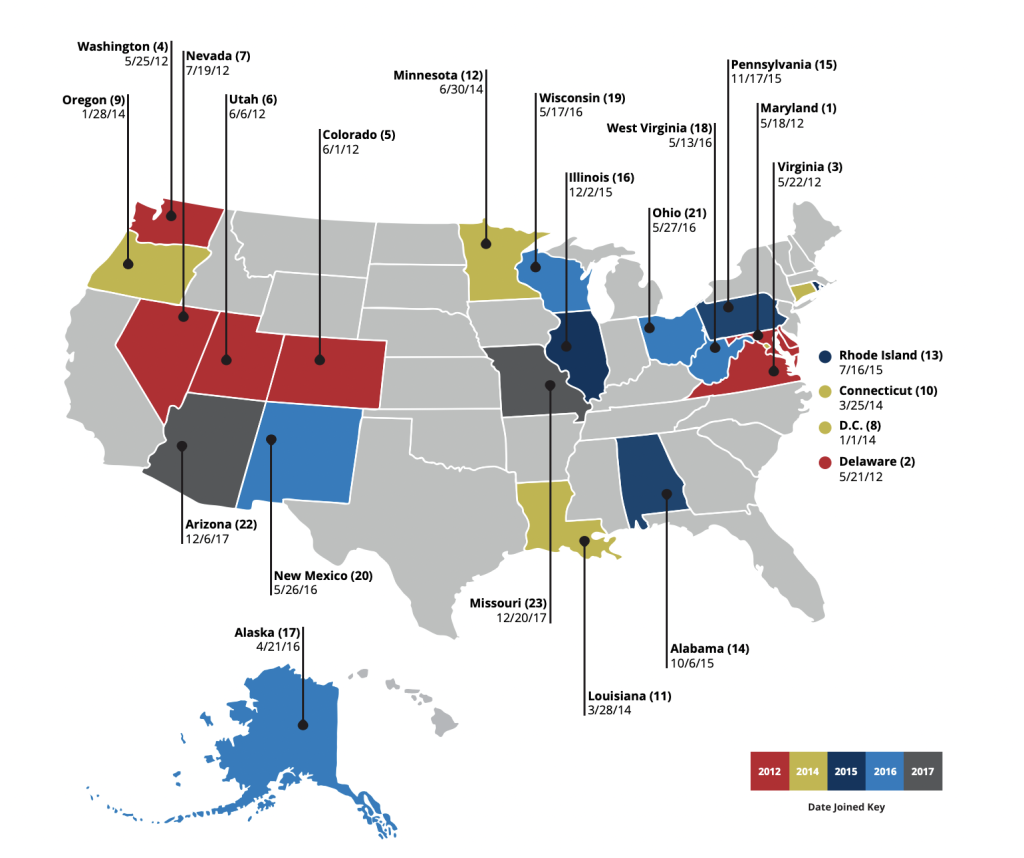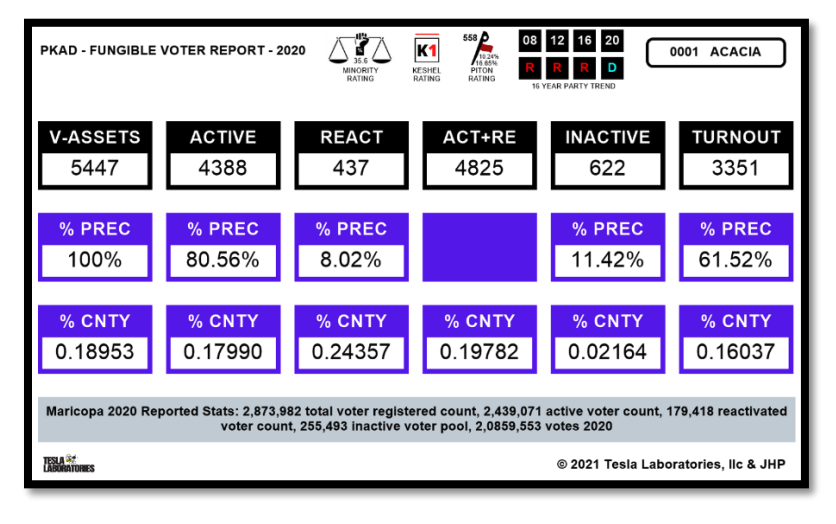Jovan Hutton Pulitzer says he would like to see subpoenaed information from the Electronic Registration Information Center (ERIC) in Arizona from Maricopa County. The Mar. 19 letter to Attorney General Mark Brnovich is a detailed 15-page request for information and reconciliation of the database that Pulitzer says has been difficult and perplexing on several fronts. He contends that "Maricopa County might not even be accepting the reports from ERIC, which the state pays for, and ignoring the identification of dead voters that should be immediately removed from the voter rolls."
The ERIC database is set up to reconcile data that include new voters, dead voters, and voters who have moved out of state with the State of Arizona voter rolls. Such information will be critical to understand better what happened in the County during the 2020 General Election and help rectify voter rolls for future elections.
According to Pulitzer, the ERIC program in the state is not only understaffed, but the staff does not have the necessary data and technology expertise to sift through and fully utilize the ERIC database. He also says it is not fully apparent just how secure the system is—an important metric given ERIC manages "incredibly private voter registration files" with highly sensitive information like social security numbers, driver's license numbers, and other personal information.
Arizona joined ERIC in 2017, the 22nd state to do so. When the Secretary of State announced the move to participate, the press release stated:
"[I]t is estimated that 1 in 8 records in the country needs to be updated. ERIC compares official data provided by participating states as well as U.S. Postal Service addresses and Social Security death records to identify out-of-date records because they have moved, changed their names, or died. The results data is then shared with member states allowing election officials to update their voter registration rolls."
ERIC has provided list maintenance data to its members since 2013. Arizona is required to provide ERIC with voter information every 60 days. Pulitzer says there is evidence that is not taking place.
 Arizona Joins ERIC/ERIC 2017 report.
Arizona Joins ERIC/ERIC 2017 report.
For example, Pulitzer has found evidence to suggest:
"Between July 2021 and September 2021, the State of Arizona new voter registration system data was cross-checked with the Social Security Administration data sets, and egregious mismanagement and maladministration of the Arizona Voter Rolls was discovered. Fifty-eight percent (58%) of the voter records investigated came back as NO MATCH with the Social Security Administration as being a real SSN or individual.
If such invalid and/or illegal records were identified and provided to Maricopa County election officials, then such officials and representatives blatantly ignored the warnings, data and information provided. We have to wonder if this information, when passed along to the Secretary of State in Arizona, is just simply ignored or just mishandled."
 Non-Matches/Arizona/JHP/Brnovich P. 2
Non-Matches/Arizona/JHP/Brnovich P. 2
During the Maricopa County forensic audit, Pulitzer says he found voter rolls "both compromised and woefully lacking." The ERIC system should have addressed this issue, and instead, Pulitzer fears that it is more like an "activist" designed system, "funded by the Pew Center and the Soros Open society." As a result, Pulitzer believes there was widespread "mishandling of this 'information of bad voter files' that may have significantly change[d] the outcome of the 2020 General Election in Maricopa County, Arizona."
Pulitzer says that voter data can easily be manipulated and/or used to effectively populate a "slush fund" that can be tapped during elections to inject votes as needed. In other words, he says, the data can be "used to 'cast votes illegally for those not legally present to vote.'" This information can be used as a 'voter slush fund' or a 'fungible voter asset' if nefarious parties know exactly where to "discover" such obscure assets. He shows how he tracked "dormant and reactivatable assets" for the Maricopa forensic audit.
 Jovan Hutton Pulitzer/March 22 Letter
Jovan Hutton Pulitzer/March 22 Letter
A slush fund would be a significant changer in the outcome of an election, particularly when the election is won with such a narrow margin as it was in Arizona in 2020. According to the Navarro Volume 111 2020 Election Capstone Report, approximately 254,772 illegal votes were counted in 2020, leaving Biden with an extremely narrow "victory" margin of 10,457 votes.
So, says Pulitzer, reactivating voters in various categories can result in an election with a "selected winner," not a "duly elected winner." Pulitzer's factual data shows that significant numbers of voters were reactivated in Maricopa County for the 2020 election, resulting in an "amount equal to 17 times the margin of victory in the 2020 General Election."
 JHP Letter to Brnovich/P. 5/Facts
JHP Letter to Brnovich/P. 5/Facts
The gallery provided below is pages 6 through 15 in the letter showing Pulitzer's request for highly specific items from the State of Arizona. Those requests include but are not limited to details on voters, both active and inactive, all data transfers to ERIC, whether ERIC notified Arizona about duplicates and bad records from the start, whether Arizona is complying with the 60-day updates to ERIC on voter files, and whether the files in ERIC are materially different from the files from the State of Arizona. How flagged files are handled, how illegal voters are managed, how file mismatches are handled, whether deceased voters continue to be on the rolls after they are flagged. Other voter roll maintenance issues are also requested in the letter. Notably, Pulitzer suggests that the State of Arizona "has not accept[ed] ERIC dead voter data set information as a part of their regular maintenance program."
[gallery type="slideshow" size="medium" td_select_gallery_slide="slide" link="file" ids="38110,38109,38108,38107,38106,38105,38104,38103,38102,38101"]
The requested subpoena for data looks to clarify what was egregiously muddied and/or indecipherable when Pulitzer attempted to make sense of the way the County's database and ERIC match up.


